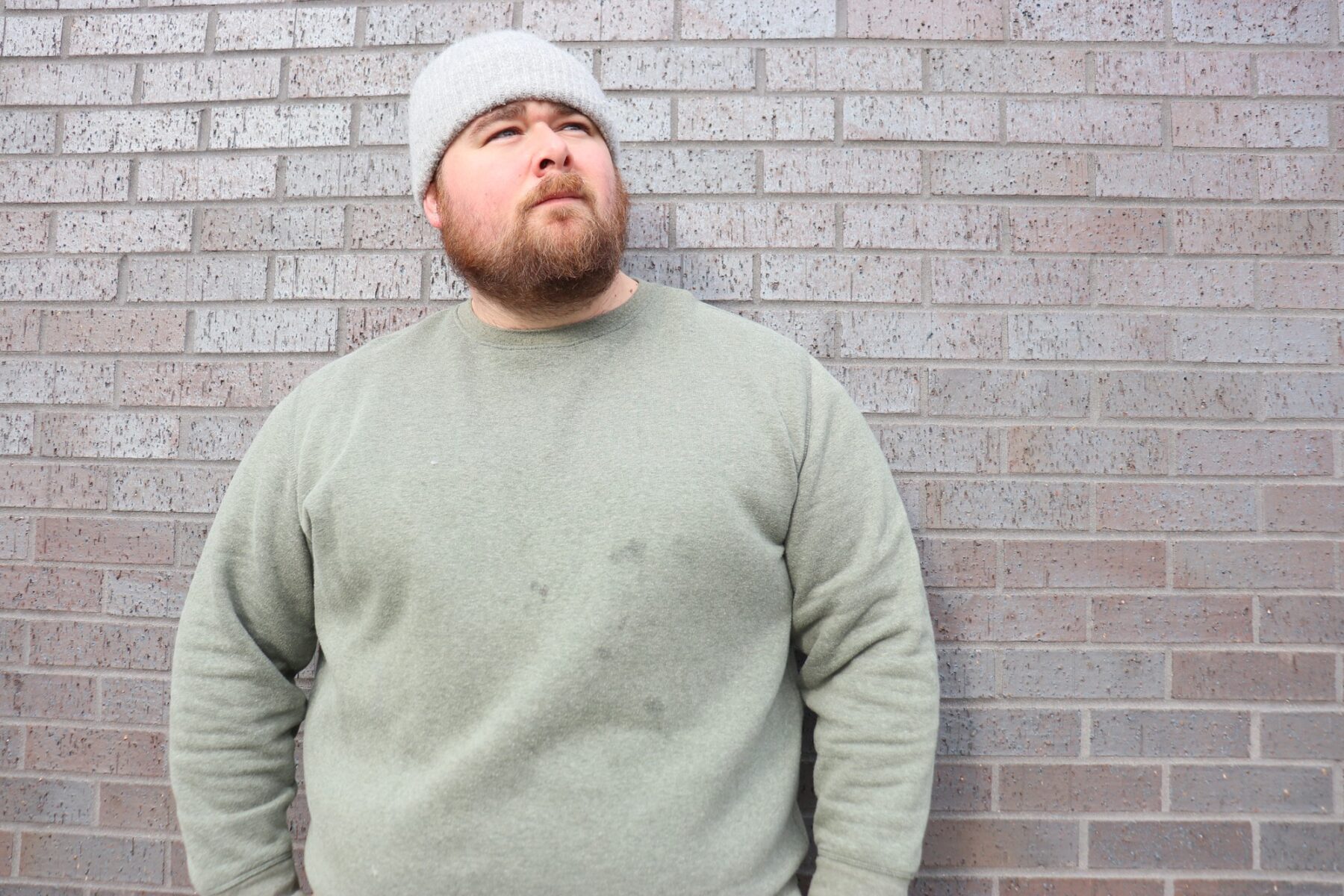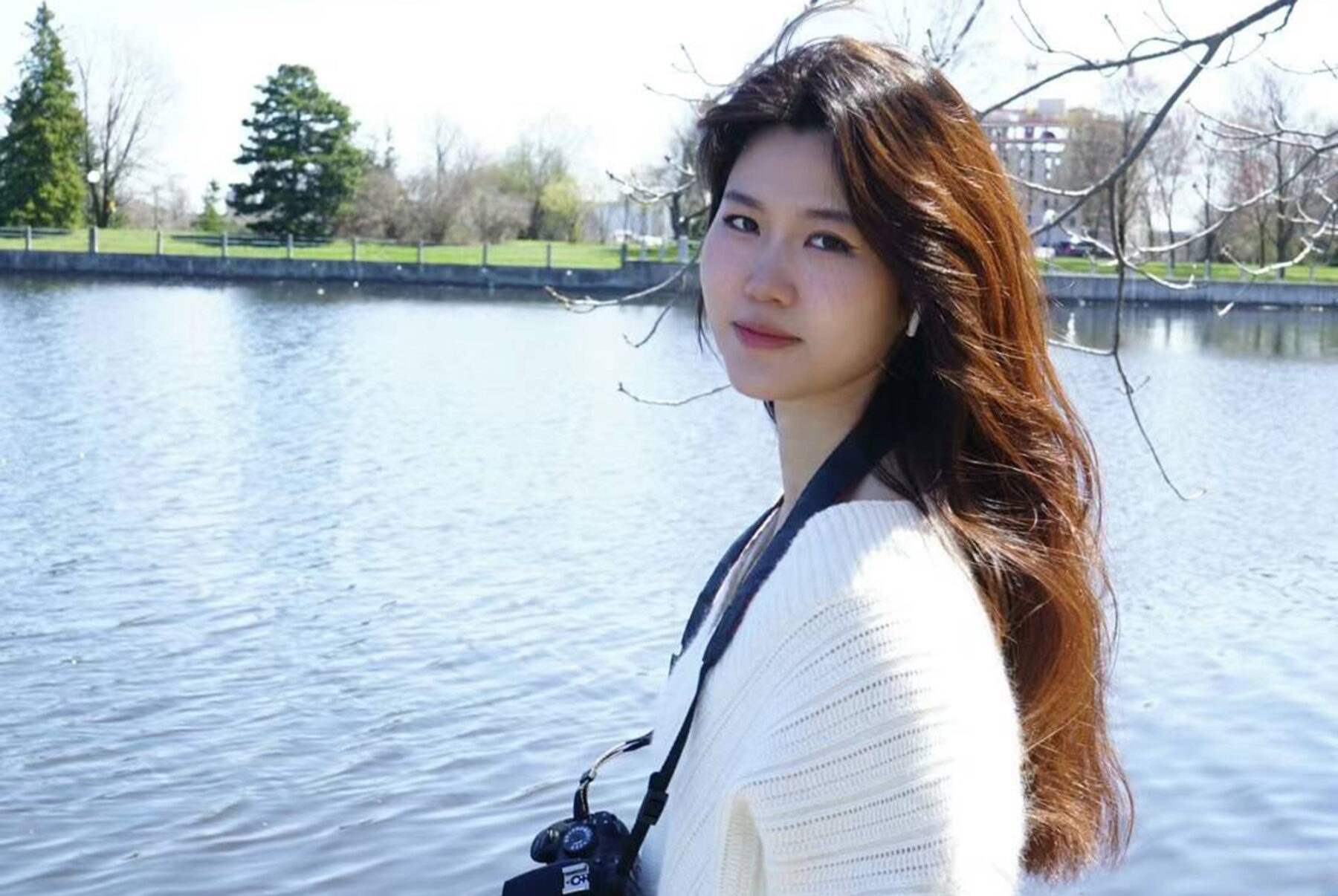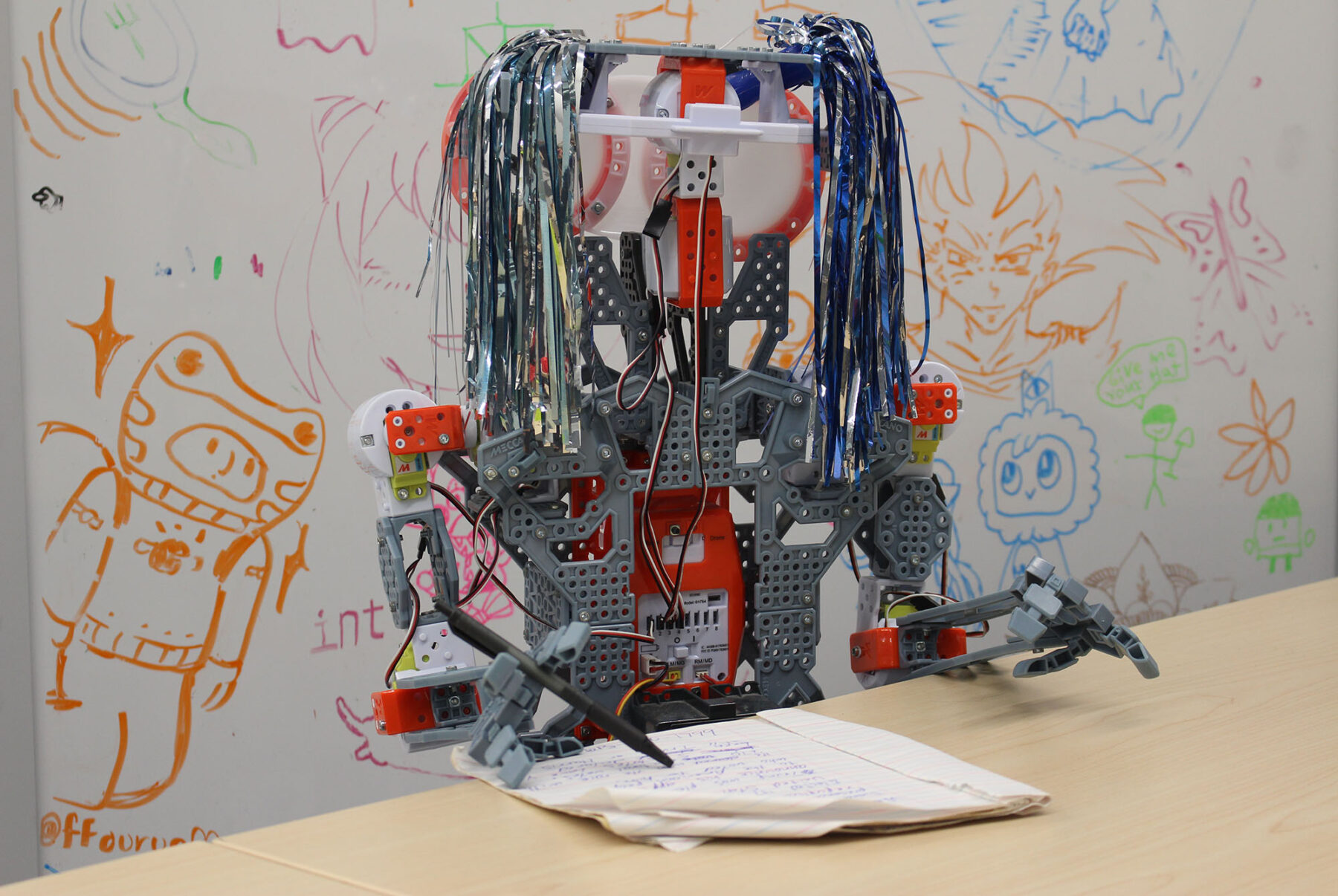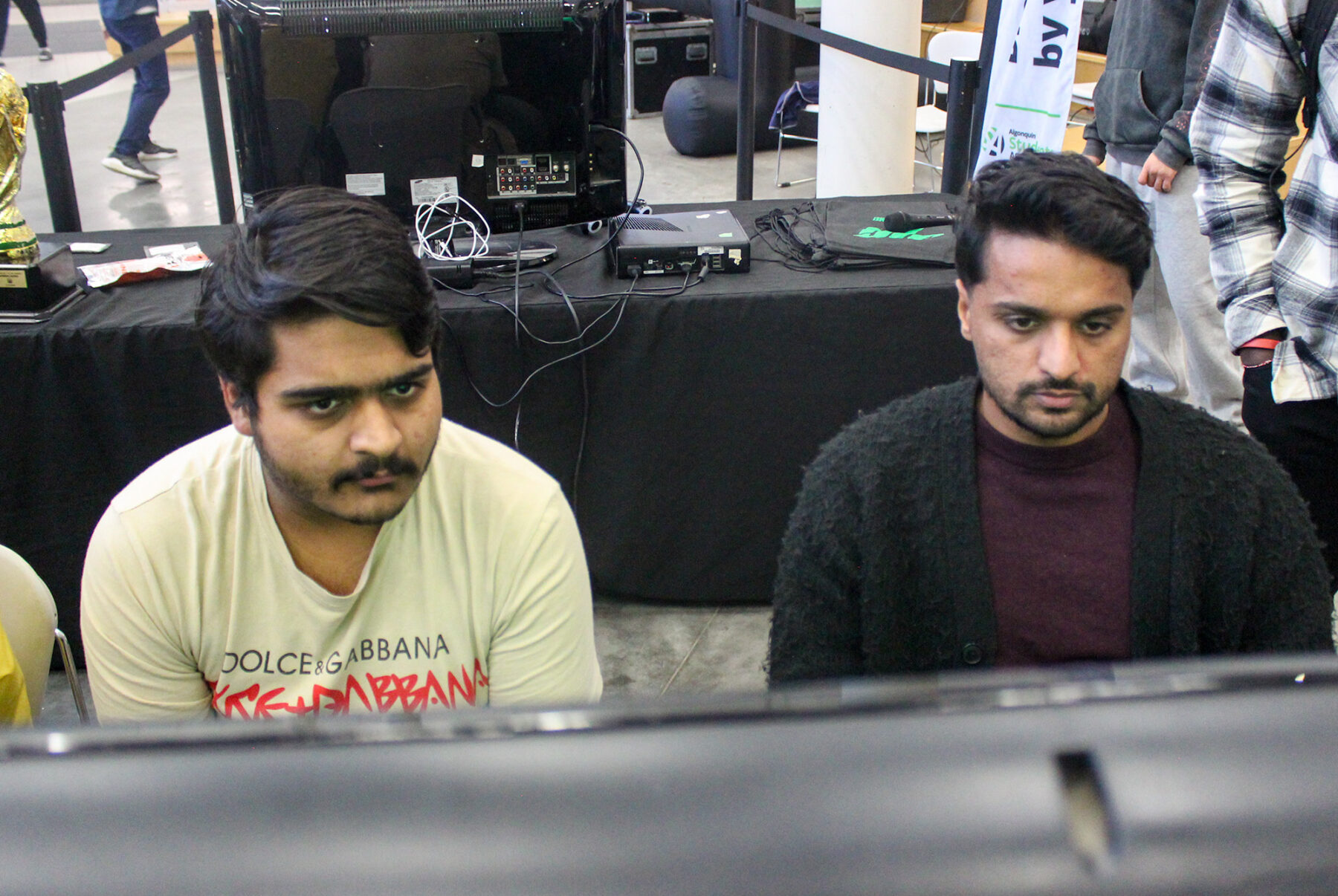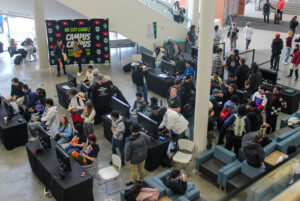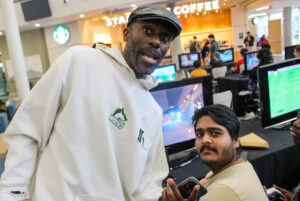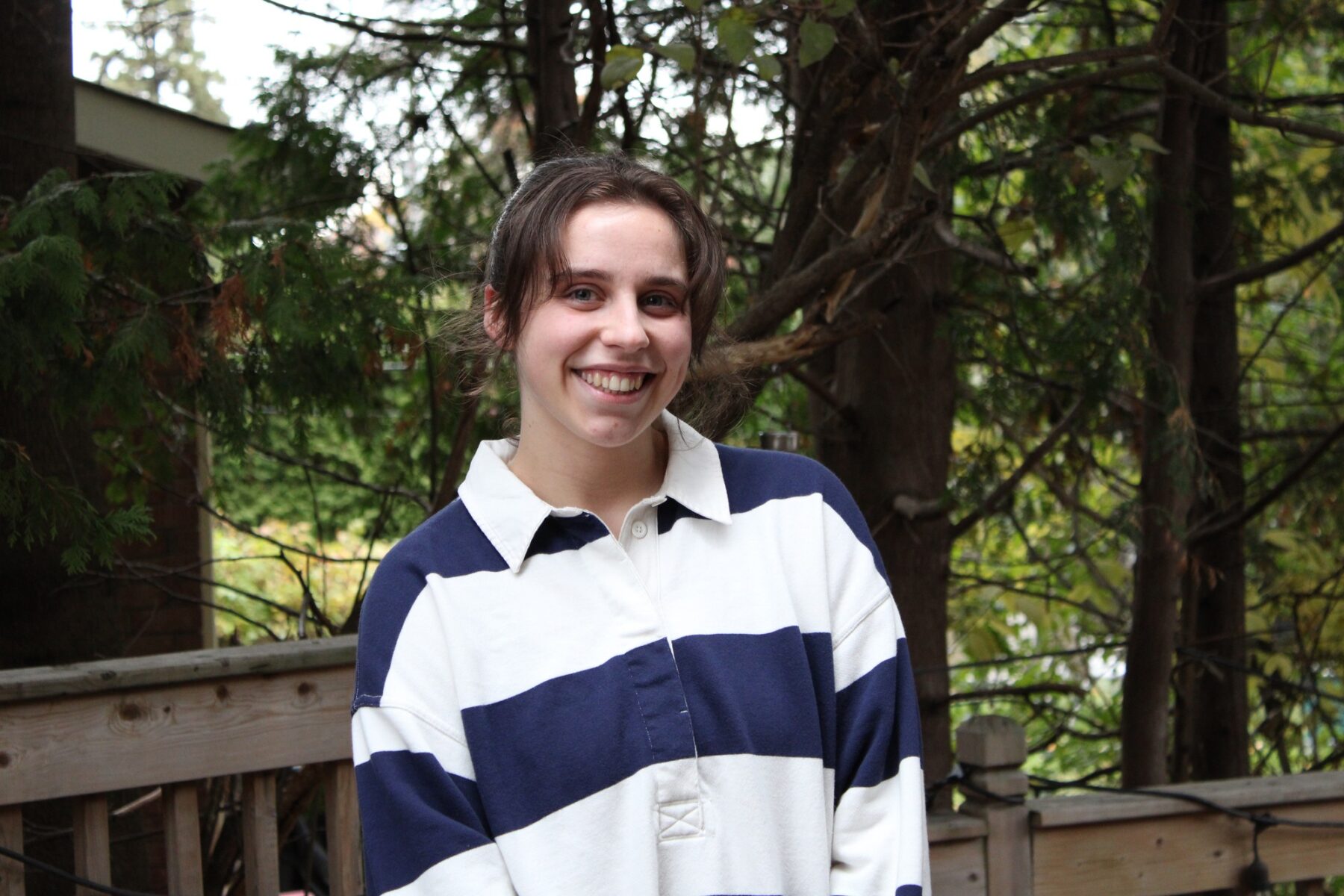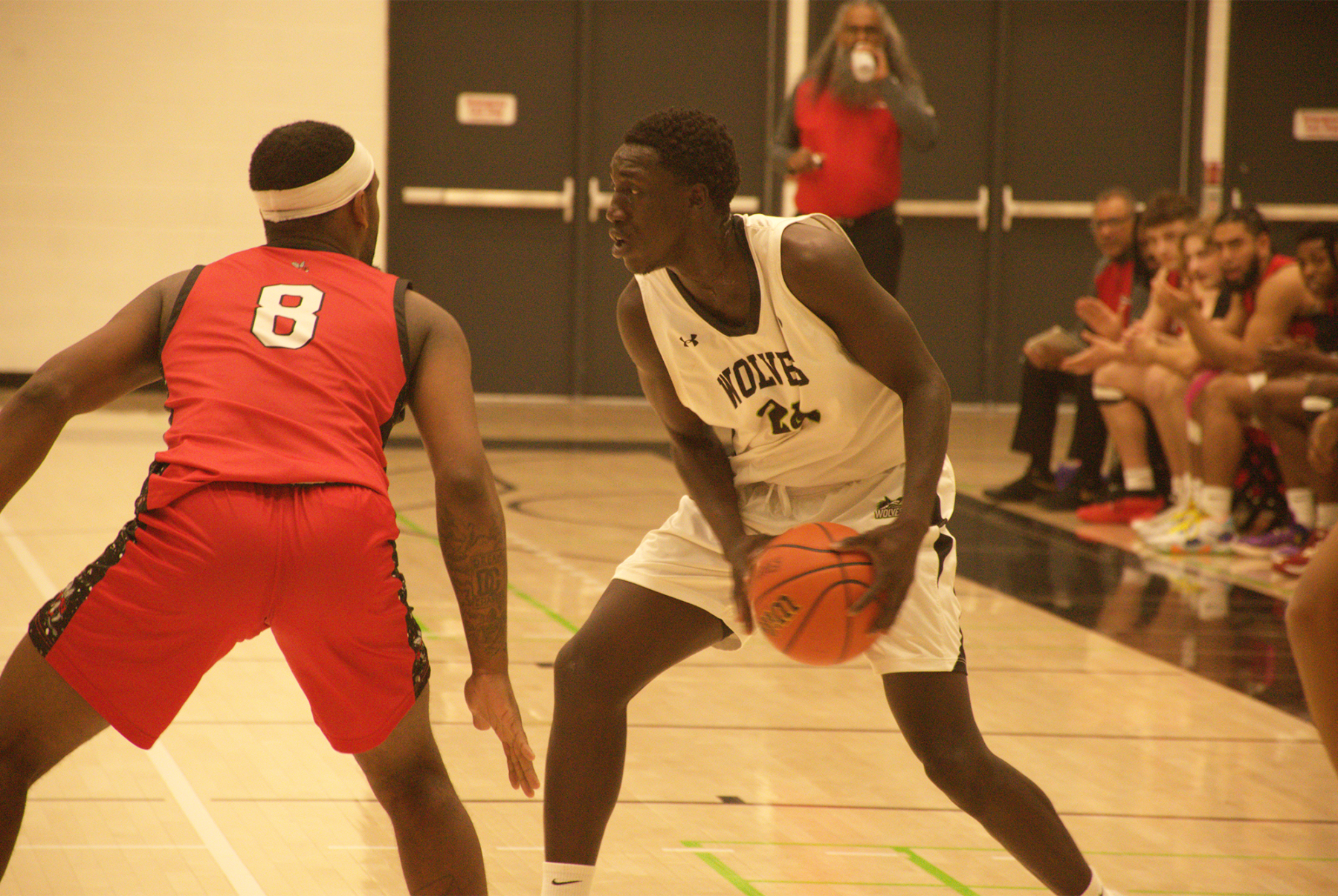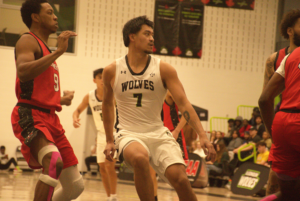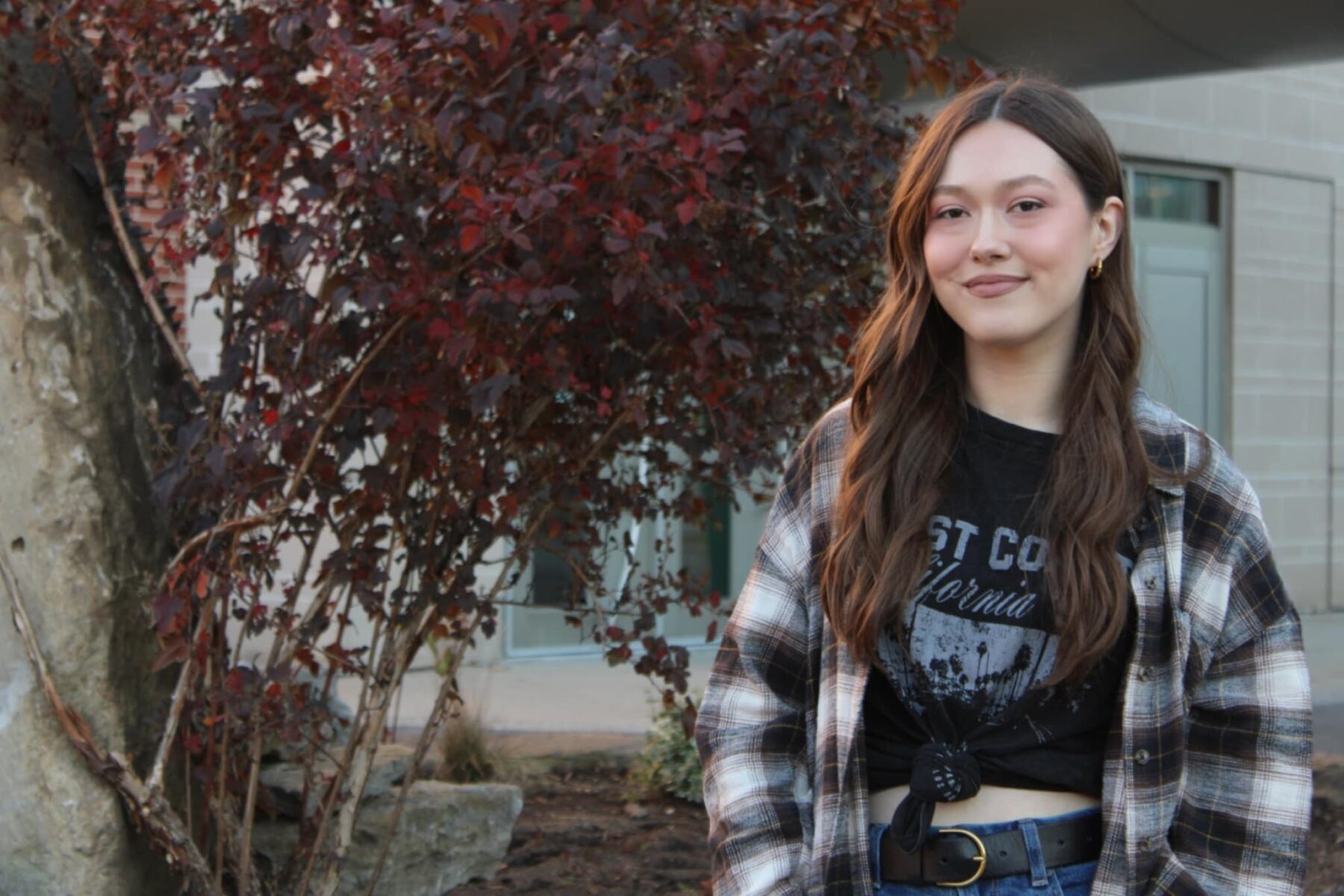AC Hub organizes a practical kitchen workshop for kitchen novices
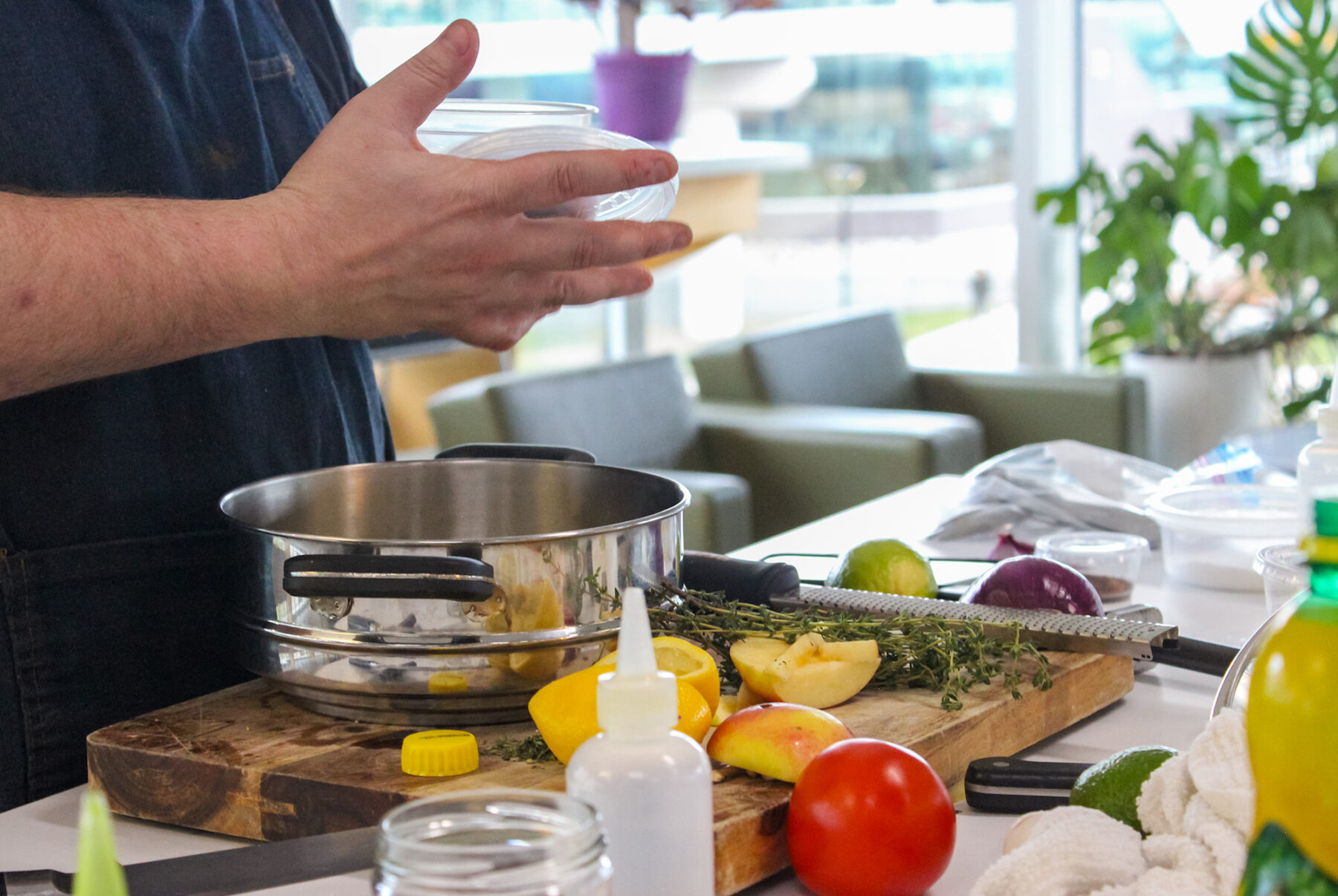
AC Hub hosted its first Kitchen Skills 101 workshop at Algonquin College on Nov. 12. Under the guidance of Chef Chris Tremblay, students learned how to prepare quick and healthy meals, including overnight oats, a Greek salad with homemade dressing and guacamole.
Tremblay made the workshop’s goal clear from the start. “Students have busy lives, and we want them to be able to prepare quick and healthy meals with a nice cutting board, spoons and a few simple ingredients,” he said.
This emphasis on convenience, speed and health drew many students to the workshop.
With Tremblay’s lively demonstrations and explanations, students gradually found their rhythm in the kitchen, starting with chopping onions and mashing avocados.
Katrina Bernasor, a Level 1 student in medical device reprocessing at Algonquin College, was especially engaged in the front row. As a student living away from home for the first time, she admitted she knew almost nothing about cooking.
“I signed up out of curiosity because I’m really bad at kitchen skills,” she said. “This workshop was really interesting, especially making the salad dressing and couscous. It made me feel interested in developing my own cooking skills now.”

Duc Anh Huynh, a Level 1 game development student at the college, learned how to cook with basic ingredients at home from daily cooking experience. However, his kitchen style has always been simple, with limited ingredients and basic cooking methods.
“At first, I thought today would be a workshop focused more on chopping veggies and preparing food,” he said. “But I didn’t expect the chef to share more about the recipes and his cooking techniques.”
The kitchen workshop left him feeling especially fulfilled, particularly during the segment on making homemade salad dressing, which seemed to spark a newfound interest in cooking.
“Although I make salads at home, I just buy the dressing sauce from the supermarket,” Huynh said. “Today’s workshop taught me how to make my own salad dressing, and I believe I’ll be using it a lot in the future.”
Tremblay studied culinary management at Algonquin College back in 2007. After founding his own brand and restaurant, he returned to campus as an event instructor through some connections.
“The campus is vastly different from what I remember from 18 years ago, and I don’t even recognize where it is,” he said. “But as far as a life skill goes, I can’t think of another life skill that would be more important than cooking.”
Tremblay hopes to help the kitchen beginners overcome their fear of cooking through simple recipes and practical tips.
“In reality, there’s no problem with life, only solutions,” he said. “If you’re cooking something, it’s good, it’s safe and it is clean, and as long as you like it, there’s no problem. It’s just a solution.”
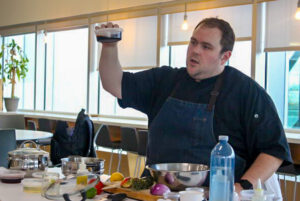
Rebecca Lafontaine, the event programmer at the AC Hub, was the key facilitator behind this collaboration with Tremblay. She explained that the inspiration for the hands-on kitchen workshop came from student feedback.
“We found that students really enjoy hands-on and creative activities,” she said. “We thought not only could we bring cooking skills in the class, we could also teach meal prep, chopping techniques and quick, easy snacks — skills that students can bring back to campus with them.”
For other students with no cooking experience, Huynh also offered his own advice.
“If you don’t have much cooking experience and want to start with something really simple, you should come to events like this,” he said. “You can get some easy and healthy recipes and actually make them yourself.”
Although there are no immediate future plans to hold similar events, Lafontaine said that the AC Hub has already distributed surveys to participants to gather more feedback in order to expand hands-on activities.

